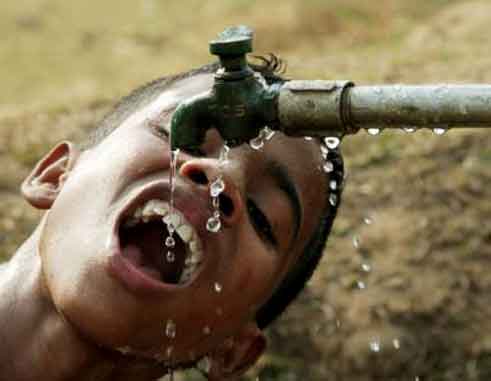THE importance of water cannot be over-emphasized; after all, life as we know it could not exist in the absence of this molecule. Water supports not only human life but equally important, the vital ecosystems on which we depend for our very survival. Our food, clean air and other ecosystem services are as a result of enduring complexes of plant-animal and microbe interactions all facilitated by water. Notwithstanding, freshwater is undoubtedly a finite resource accounting for only a small fraction of the total volume of water found on planet earth.
Access to freshwater contained in rivers, streams and ground sources within our region and beyond is constrained by environmental conditions and negative human practices that compromise water quality and imperil human health. This has a deleterious effect on not only socio-economic development but also life itself. It is for some of these reasons that the United Nations Conference on the Environment and Development (UNCED) in 1992, designated March 22 as World Water Day to highlight the importance of freshwater resources and to focus attention on sustainable management approaches. Global celebrations began the following year in 1993 and have continued every year since.
The theme for this year’s World Water Day is wastewater in order to promote the concept of reducing and reusing wastewater.
Water that has been used in a home, agriculture or industrial process constitutes wastewater. Within our region, wastewater is largely untreated before being deposited into our environment with negative consequences on human health and the environment. However, in nearly all instances, with adequate treatment, the very same wastewater can be reused and consequently produce many benefits. Some of our hotels have wastewater treatment plants and robust water recycling and re-use programmes which yield not only cost savings but minimize the environmental footprint of their operations thereby contributing to the preservation of our natural environment and human health.
The new International Development Agenda and in particular the Sustainable Development Goals (SDG’S) and targets requires nations to, amongst other things, by 2030 to “improve water quality by reducing pollution, eliminating dumping and minimizing release of hazardous chemicals and materials, halving the proportion of untreated wastewater and substantially increasing recycling and safe reuse globally.” Gains made towards this mark will also contribute to better health and well-being, safe water and improved sanitation services, biodiversity conservation within the terrestrial, aquatic and marine domains and clean energy, just to name a few.
A series of activities has been planned by a collective of local government agencies including: the Ministries of Health and Agriculture, the National Utilities Regulatory Commission (NURC) the Water and Sewerage company (WASCO) Inc. and regional agencies such as the Organisation of Eastern Caribbean States (OECS) and the Caribbean Public Health Agency (CARPHA) with support from the German Government funded Caribbean Aquaterrestrial Solutions Programme.
The initiative has been led by the Water Resources Management Agency. Activities to commemorate this important celebration include the airing of video documentary highlighting practical wastewater applications for domestic and non-domestic purposes and the hosting of panel discussions with government, private sector and regional stakeholders to discuss future plans for improvement of wastewater services in Saint Lucia.
The entire public is therefore invited to view these offerings and to participate actively in developments towards improved sanitation and the supply of safe drinking water for all!





![Simón Bolívar - Liberator of the Americas [Photo credit: Venezuelan Embassy]](https://thevoiceslu.com/wp-content/uploads/2025/12/Simon-Bolivar-feat-2-380x250.jpg)




1 Comment